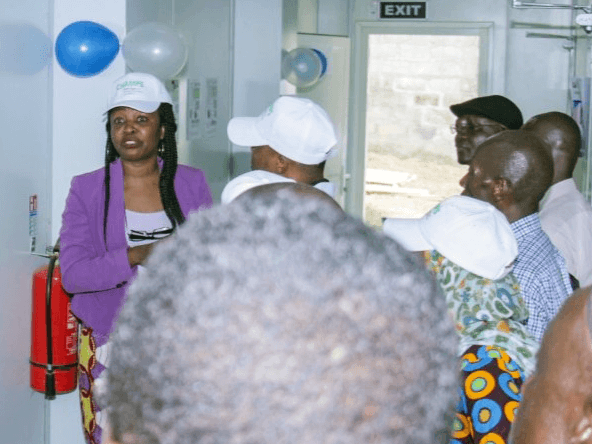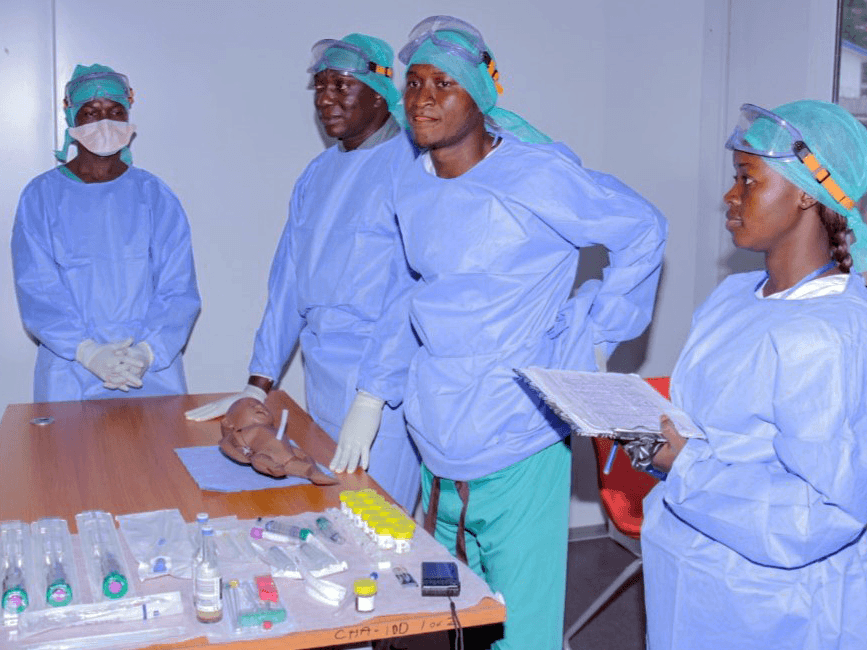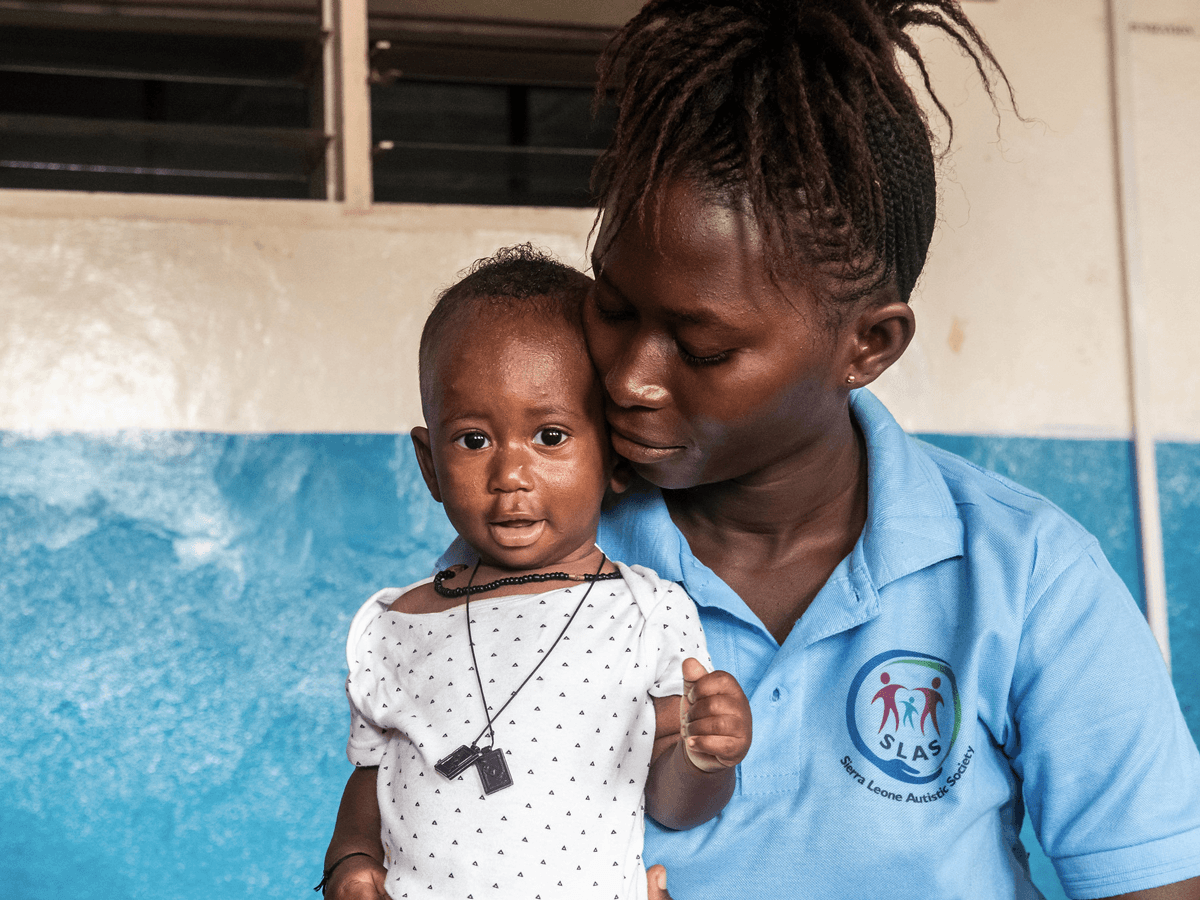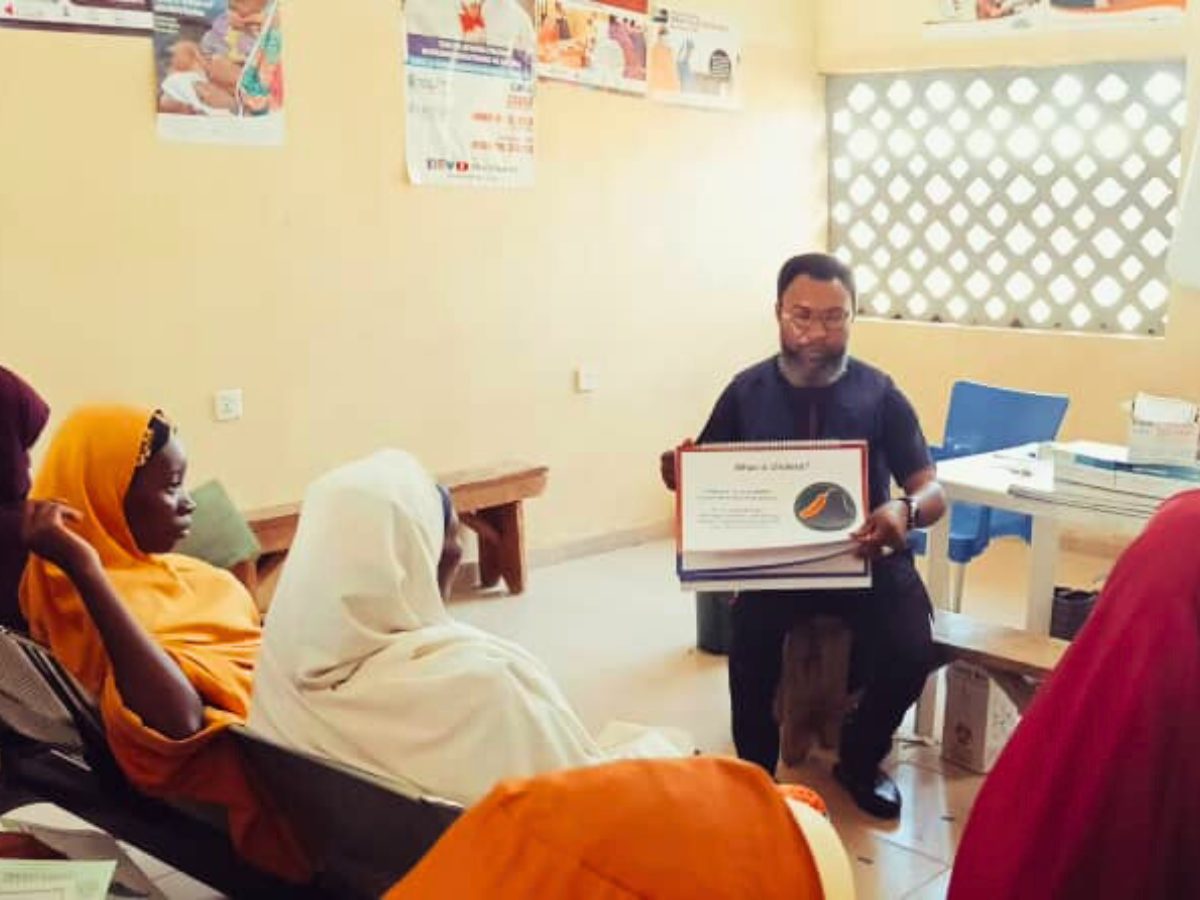Child mortality is one of the most pressing health challenges in Sierra Leone, where the under-five mortality rate is 94 deaths per 1,000 live births—compared to a global average of 49, and 6 in the United States.
Sierra Leone is committed to reducing child deaths, and is already implementing many public health initiatives with ICAP support to create healthier environments and prevent disease, including infection prevention and control measures in hospitals and national coverage for infant malaria prevention.
However, a more precise understanding of the causes of death among children would enable targeted responses to save lives. This is why ICAP is collaborating with the Sierra Leone Ministry of Health and Sanitation to implement the Child Health and Mortality Prevention Surveillance (CHAMPS) project.
CHAMPS provides precise, accurate, and comprehensive information on the causes of death among children under five years of age through a procedure known as minimally invasive tissue sampling (MITS) with laboratory testing of tissue samples. This project, funded by the Bill & Melinda Gates Foundation, is currently active in seven low-resource countries in sub-Saharan Africa and South Asia. Sierra Leone joined in 2018.
In Sierra Leone, CHAMPS is implemented by a consortium of health-oriented organizations through the Ministry of Health and Sanitation. As part of the consortium, the U.S. Centers for Disease Control (CDC) provides technical assistance, Sierra Leonean organization Focus 1000 ensures program acceptability and feasibility, World Hope International leads mortality surveillance activities, and ICAP supports laboratory, diagnostic, and informatics data systems. ICAP is specifically focused on building laboratory and pathology capacity for postmortem specimen collection and testing, as well as Determination of Cause of Death (DeCoDe) Panel activities.


On May 3, 2019, CHAMPS celebrated the official opening of the project office and the groundbreaking of a new laboratory at the regional hospital in Makeni. The event welcomed Amara Jambai, MD, Chief Medical Officer for Sierra Leone, Reinhard Kaiser, MD, CHAMPS co-director and CDC-Sierra Leone’s associate director for science, Carlton Philadelphia, political officer for the U.S. Embassy in Sierra Leone, and Anthony Sandi, MD, deputy minister of health for Sierra Leone.
During his speech, Dr. Sandi said: “under-five mortality is unacceptably high at the global level and even more alarming in our country. Hence, the provision of efficient laboratory services is key to a functioning health care system in Sierra Leone.”
CHAMPS activities in 2018 focused primarily on strengthening laboratory and data systems and training project staff and health care workers to support implementation. The minimally invasive tissue sampling phase launched in February 2019, and during the first nine weeks, tissue samples were collected, analyzed, and recorded for more than 40 children under age five who had died. In the coming months, ICAP will continue to provide technical assistance for database maintenance, as well as data collection, management, and reporting.
“CHAMPS is an important initiative not only to strengthen Sierra Leone’s laboratory infrastructure, but also to improve strategic information so we can direct our actions and resources most effectively to help save more young lives,” said Ima-Abasi Bassey, FMCPath, lead pathologist for ICAP in Sierra Leone.
Photo captions—Header image: a mother waits with her child inside an ICAP-supported health facility in Sierra Leone. Photo 2 and 3: images from the CHAMPS Sierra Leone office opening and lab groundbreaking event on May 3, 2019, in Makeni.
A global health leader since 2003, ICAP was founded at Columbia University with one overarching goal: to improve the health of families and communities. Together with its partners—ministries of health, large multilaterals, health care providers, and patients—ICAP strives for a world where health is available to all. To date, ICAP has addressed major public health challenges and the needs of local health systems through 6,000 sites across more than 30 countries. For more information about ICAP, visit: icap.columbia.edu







